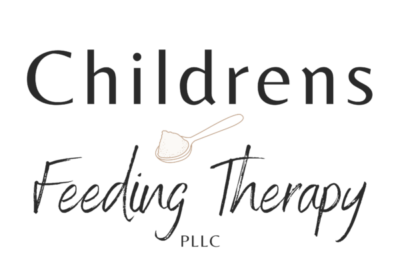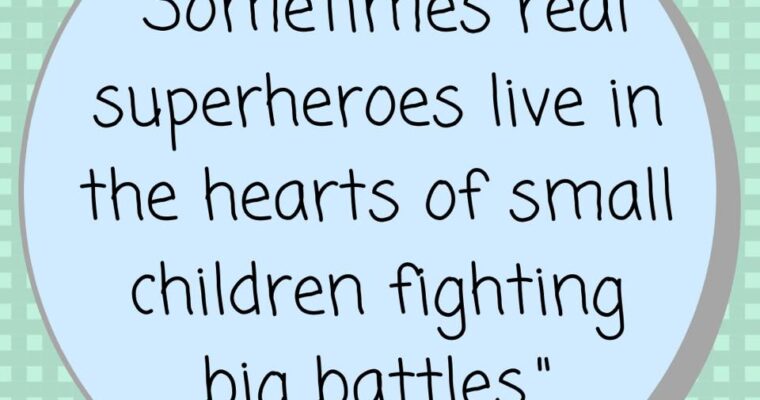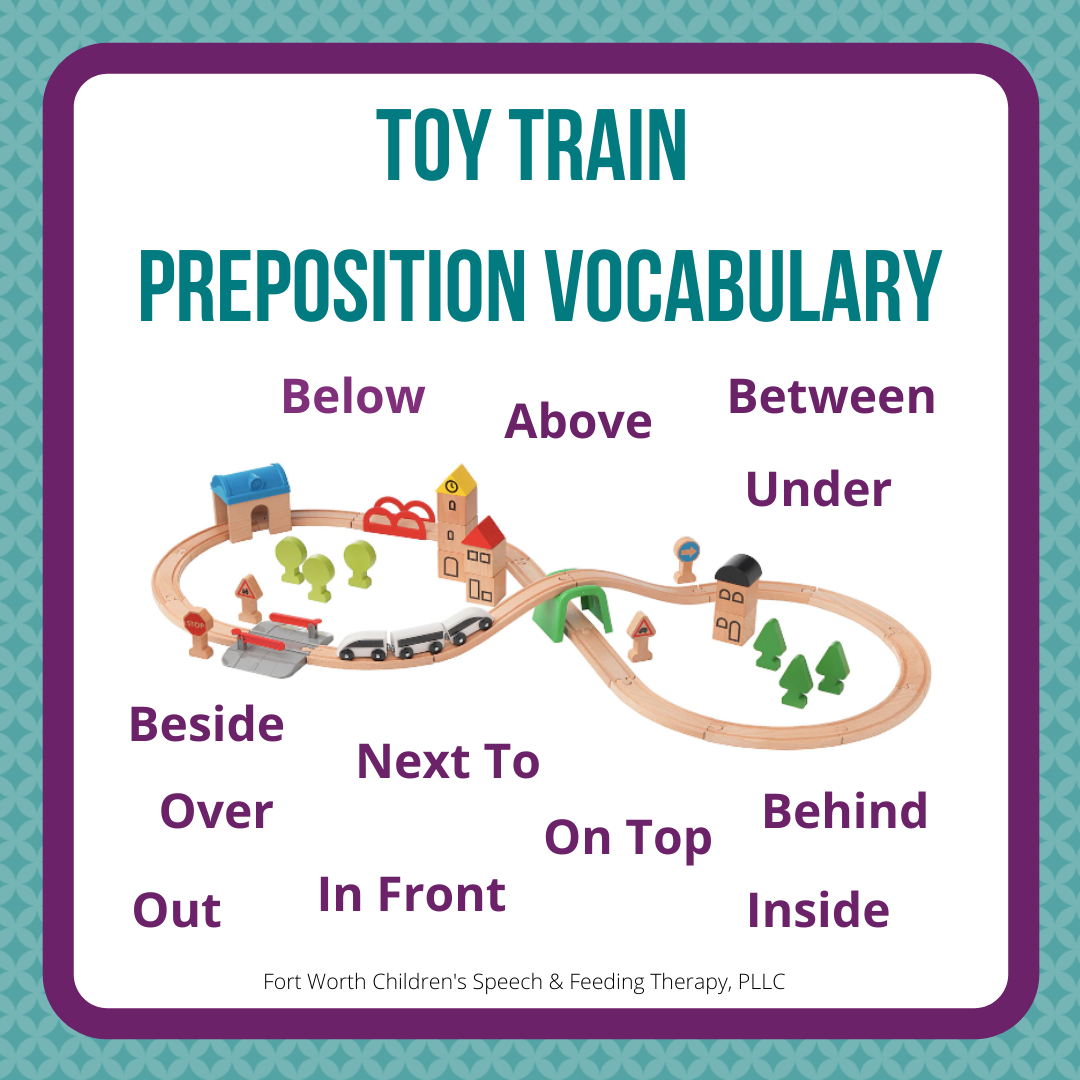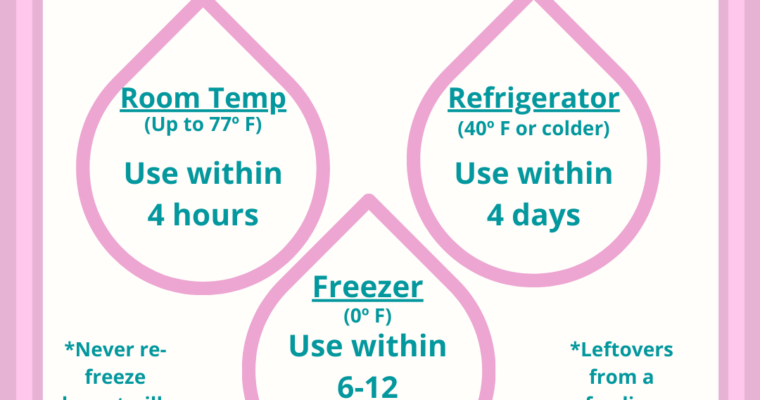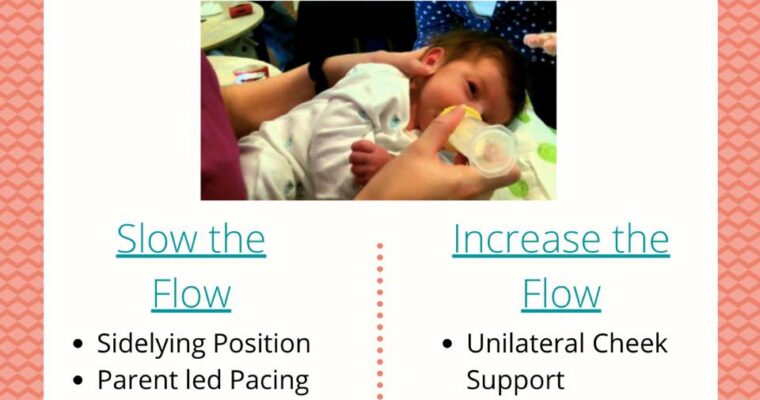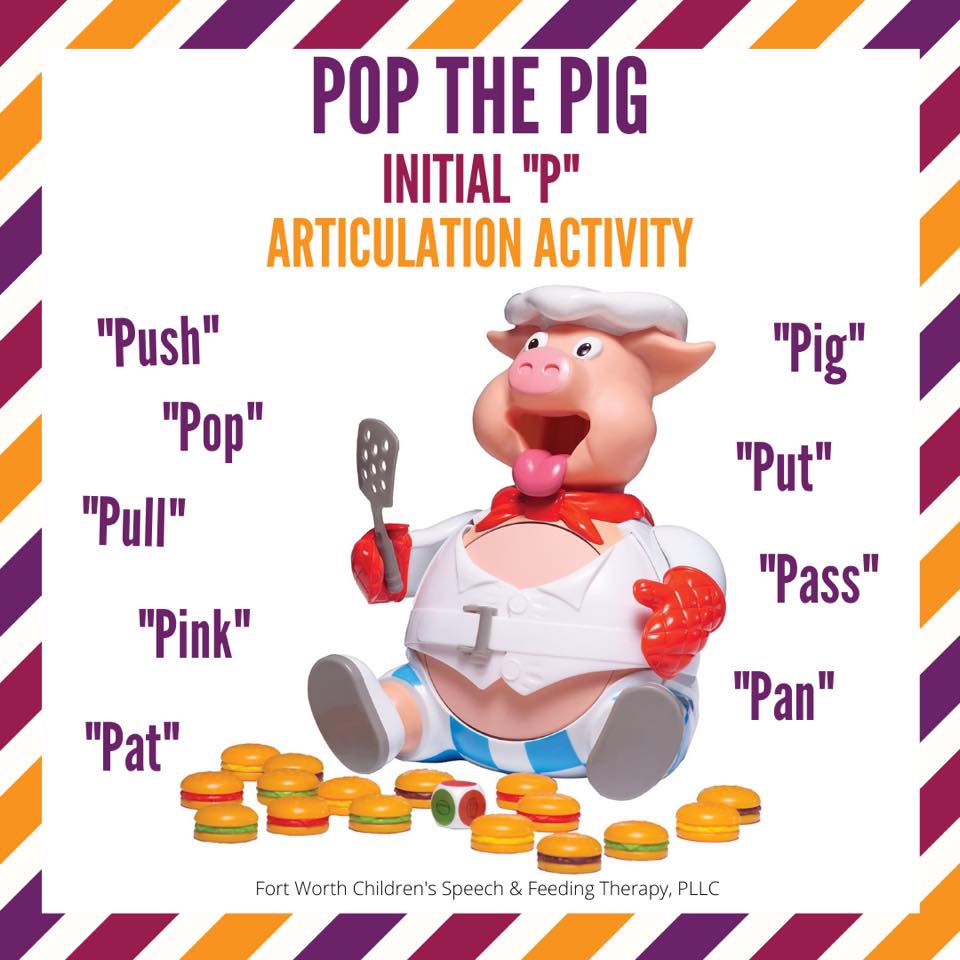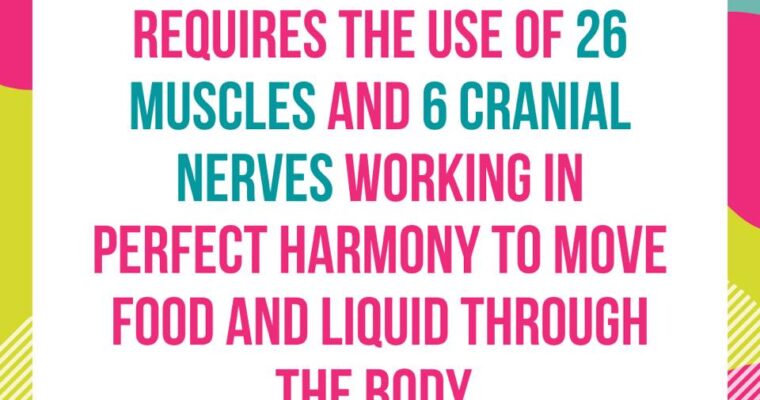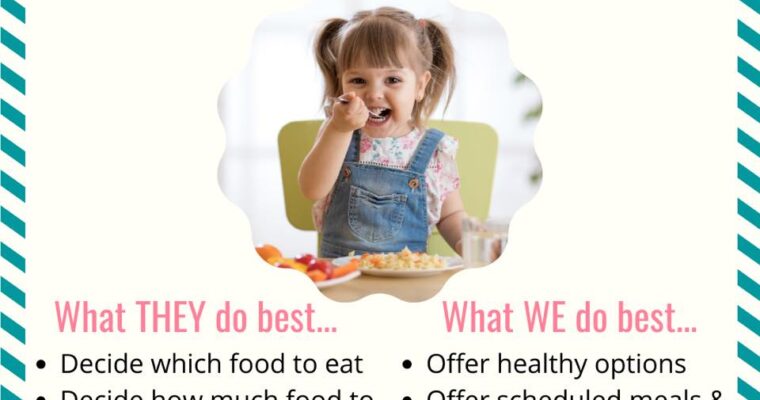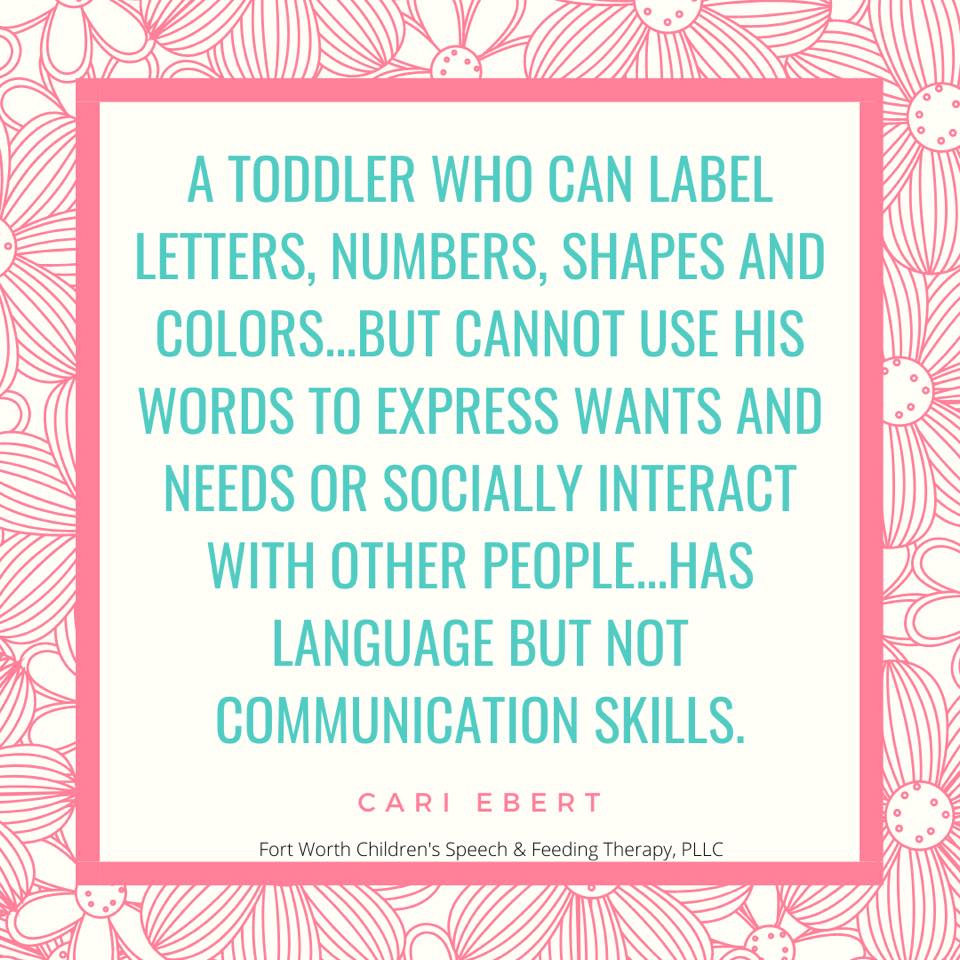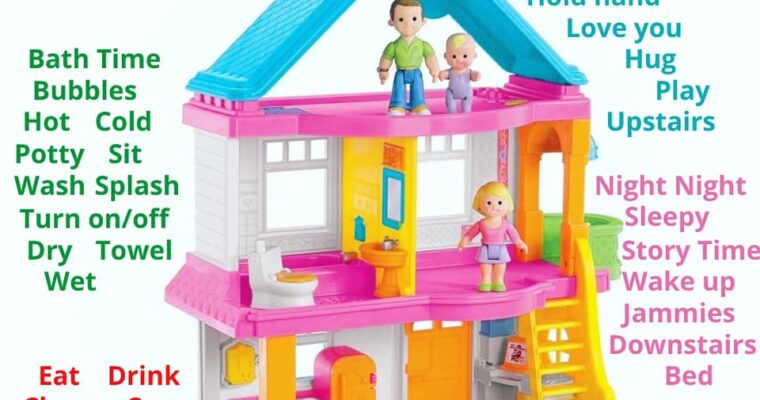Let’s talk prepositions!!
These core words make communicating easier for our littles in the home and school environment since they are apart of our everyday language!
Think about how many times a day you ask your kiddo to “Put their cup ON the table.” Or how often teachers ask kiddos to line up and stand “BEHIND your friend.” Understanding and using these words correctly make communication easy and seamless.
Kiddos typically begin to use simple prepositions, “In & On” by 24 months old. Additional prepositions (Next to, Under, Behind, In front of) are typically mastered by age 3.5-4 years of age.
When learning prepositions gets tricky I immediately pull out my toy train set! (Remember, we learn through PLAY, not flash cards!!)
Toy trains give you the perfect play opportunity to teach and use prepositions! “The blue car goes BEHIND the engine, the train goes IN the tunnel, the train is UNDER the bridge, the train is NEXT TO the train station.” The possibilities are endless!
This activity lends itself well to our visual and tactile learners as they are interacting with every aspect of the language they use! So pull out those trains and get your choo-choo “on”!
